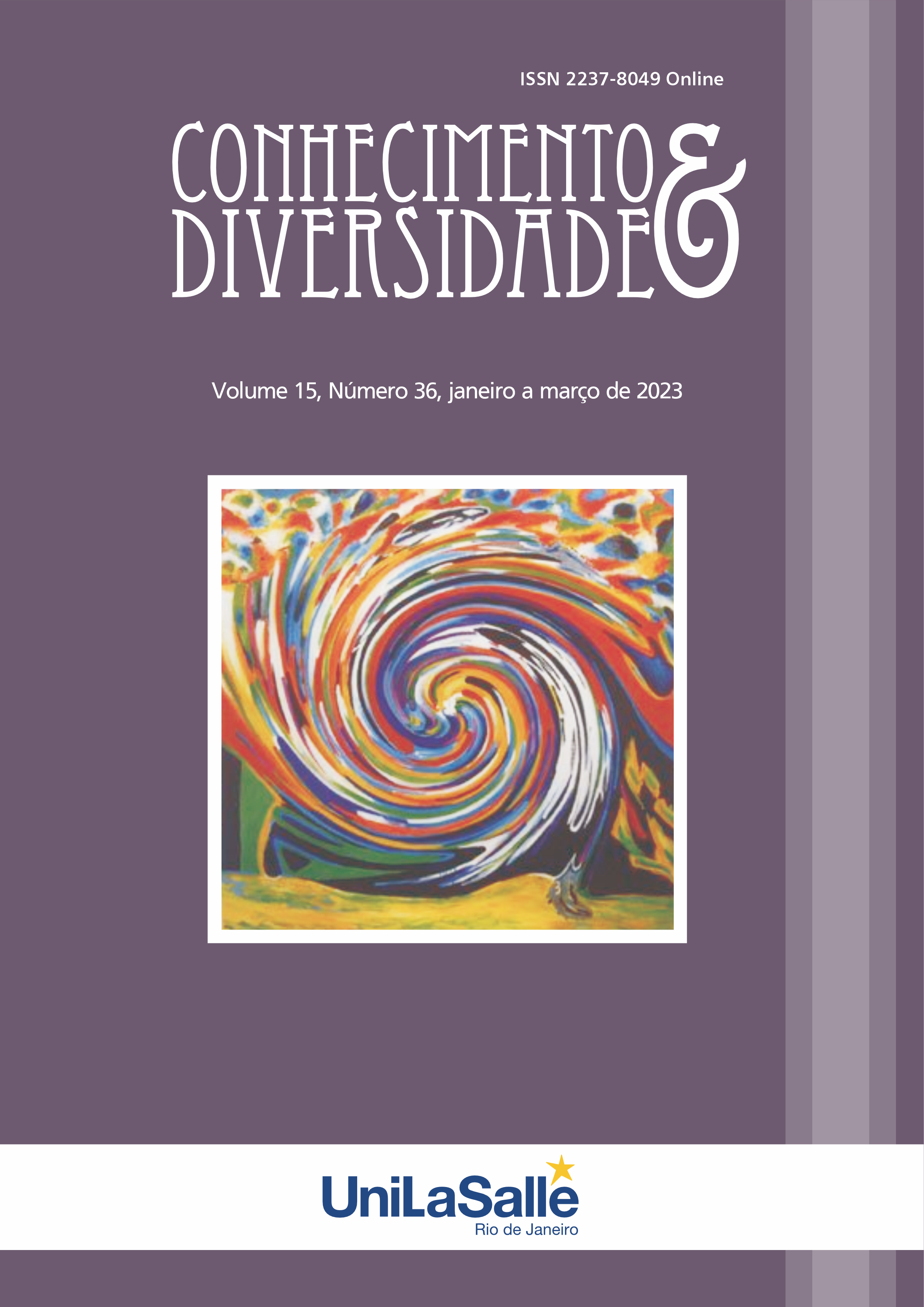THE IMPORTANCE AND FACTORS AFFECTING THE ACCREDITATION OF VOCATIONAL EDUCATION QUALITY IN VOCATIONAL COLLEGES
DOI:
https://doi.org/10.18316/rcd.v15i36.10984Keywords:
Accreditation, vocational education, colleges, importance, impact factorsAbstract
The development of education and vocational training is the cause and responsibility of the whole society, an essential content of the national human resource development strategy and planning; in which vocational colleges hold important positions and roles. In recent years, the network of vocational colleges has grown rapidly and widely throughout the country, the force of teachers and administrators as well as the number of trainees participating in vocational training has grown tremendously. With this development, accreditation of vocational education is a necessary requirement and plays an important role. A study of the State’s legal documents, the requirements of practice, and survey results on vocational education quality accreditation show that this activity plays an important role in developing vocational education. On the basis of survey and evaluation, combined with the regulations of the State, this study identifies the importance and the factors affecting the accreditation of vocational education quality in colleges, thereby recommending solutions to improve the quality of this activity in the future.
References
Bateman. A & Coles. M. (2017). Towards Quality Assurance of Technical and Vocational Education and Training. Publication of UNESCO.
Chung, M. V. (2018). Education quality accreditation and requirements for educational institutions, Education Accreditation Center - Vinh University. Vinh province.
Congress. (2006). Vocational Training Law. Hanoi: Labor - Society.
Congress. (2014), Law on Vocational Education. Hanoi: National politics.
Department for Accreditation of Vocational Education. (2019). Report on the accreditation and quality assurance of TVET in 2008 - 2019. Hanoi.
DucHiep, H., et al. (2022). The changes in education policy in the context of educational innovation in Vietnam. Revista on Line De Política E Gestão Educacional, 26(esp.1), e022043. https://doi.org/10.22633/rpge.v26iesp.1.16772
FICCI. (2017). Leapfrogging to Education 4.0: Student at the Core, FICCI-EY Future of Skills and Jobs in India Report.
Government. (2016). Resolution No. 76/NQ-CP dated September 3, 2016, at the August regular meeting. Hanoi.
Government. (2018). Decree No. 49/2018/ND-CP dated March 30, 2018, Regulations on accreditation of vocational education quality. Hanoi.
H.V. Van. (2022a). The State’s Legal Policy and Management on Civil Servants: The Current Situation and Issues Raised. International Journal of Early Childhood Special Education, 14(3). DOI: 10.9756/INT-JECSE/V14I3.688
Hong, V.V. (2022b). Management of educational activities in schools towards the approach of learners’ competency: a case study of a high school. Nuances: Estudos Sobre Educação, 32(00), e021005. https://doi.org/10.32930/nuances.v32i00.9118.
Hien, P. T. M. (2014). Institutional staff perceptions on the impact of accreditation: A study in two Vietnamese vocational training colleges. Master’s thesis.
Hien, P. T. M. (2016). Research on TVET quality assurance system of UK, Australia, and New Zealand - A research paper ordered by the Institute of Vocational Education Science for building Vietnam National Quality Assurance Framework.
IIEP. (2010a). External quality assurance: options for higher education managers, Module 1: Making basic choices for external quality assurance systems;
IIEP. (2010b). External quality assurance: Options for higher education managers, Module 4: Understanding and assessing quality;
INQAAHE. (2013). Statement on EQA. Retrieved from http://www.inqaahe.org/admin/files/assets/subsites/1/documenten/1236866920 sta tement-on-eqa.pdf;
Jibladze, E. (2016). Suspended Development: Institutional Transformation and Lack of Improvement in the Higher Education System of Post-Revolution Georgia. Dissertation, Central European University, Budapest, Hungary. www.etd.ceu.hu/2016/jibladze_elene.pdf
Khanh, D. N. (2019). Accreditation of Vocational Education - Current situation and some policy implications - General Department of Vocational Education. Hanoi.
Matei, L. & Iwinska, J. (2016). Quality Assurance in Higher Education: a Practical Handbook. Budapest, Hungary: Yehuda Elkana Center for Higher Education
MEXT. (2009). Higher Education Bureau. Quality Assurance Framework of Higher Education in Japan. https://www.mext.go.jp/en/policy/education/highered/title02/detail02/1373877.h
Ministry of Labor, War Invalids and Social Affairs. (2017). Circular No. 15/2017/TT-BLDTBXH dated June 8, 2017, stipulating criteria and standards for vocational education quality accreditation (Corrected by Decision No. 1229/ QD-BLDTBXH dated August 4, 2017). Hanoi.
Ministry of Labor, War Invalids and Social Affairs. (2017). Circular No. 28/2017/TT-BLDTBXH dated December 15, 2017, stipulates the quality assurance system of TVET institutions. Hanoi.
Ministry of Labor, War Invalids and Social Affairs. (2018). Circular No. 27/2018/TT-BLDTBXH dated December 25, 2018, stipulates the regulation on the assessment and issuance of VET quality inspector card; process, and the cycle of vocational education quality accreditation. Hanoi.
Ministry of Labor - Invalids and Social Affairs. (2018). Report on innovation and improvement of vocational education quality - Breakthrough solutions to 2020. Hanoi.
Ministry of Labor, War Invalids and Social Affairs. (2019). Circular No. 1229/QD-BLDTBXH dated August 4, 2017, on correction of Circular No. 15/2017/TT-BLDTBXH dated June 8, 2017, of the Minister of Labor, War Invalids and Social Affairs stipulating criteria and standards for vocational education quality accreditation (Circular 1229). Hanoi.
Saroyan, A. (2011). Quality assurance - Concepts and Practices. Prepared for the World Bank.
Thang, L. V. (2019). Some difficulties in self-assessment and education quality accreditation at the College of Pedagogy, Nam Dinh College of Pedagogy. Nam Dinh province.
The Central Executive Committee. (2014). Directive No. 37-CT/TW, of the Secretariat on strengthening the leadership of the Party in training highly skilled human resources. Hanoi.
Vu, V. H. (2022). Necessity and solutions for ethical education among teachers in the framework of industrial revolution 4.0. Revista on line de Política e Gestão Educacional, Araraquara, v. 26, n. 00, p. e022166, 2022. DOI: 10.22633/rpge.v26i00.17731. Disponível em: https://periodicos.fclar.unesp.br/rpge/article/view/17731.
Downloads
Published
Issue
Section
License
Copyright (c) 2023 LongAn Dang Nguyen

This work is licensed under a Creative Commons Attribution 4.0 International License.
As recommended by the Public Knowledge Project, RCD adopts for its articles a CREATIVE COMMONS Attribution CC BY 4.0 license.
This license allows others to distribute, remix, adapt and build upon your work, even commercially, as long as they credit you for the original creation.
This is the most appropriate license offered.
Recommended for maximum dissemination and use of licensed materials.



